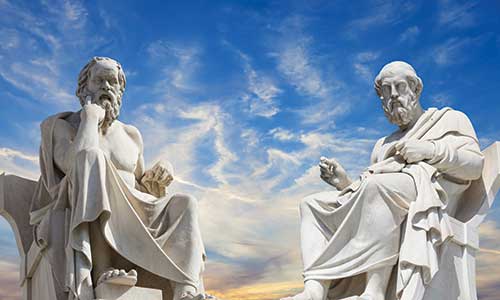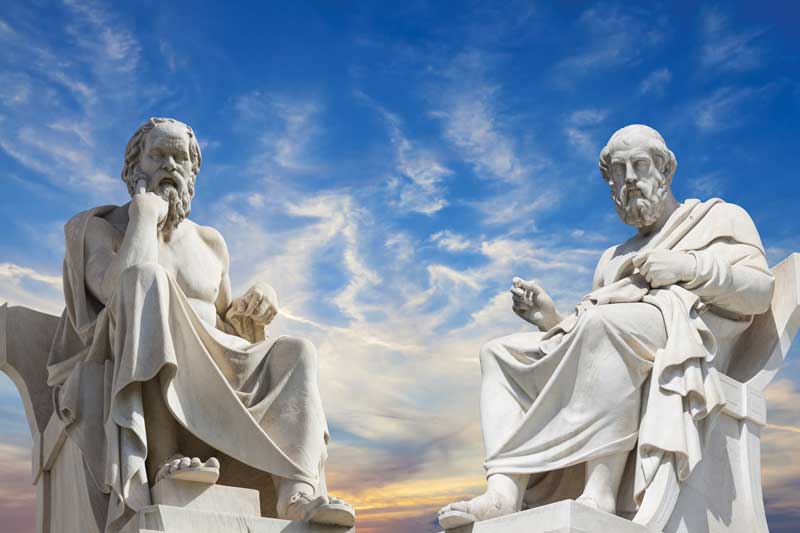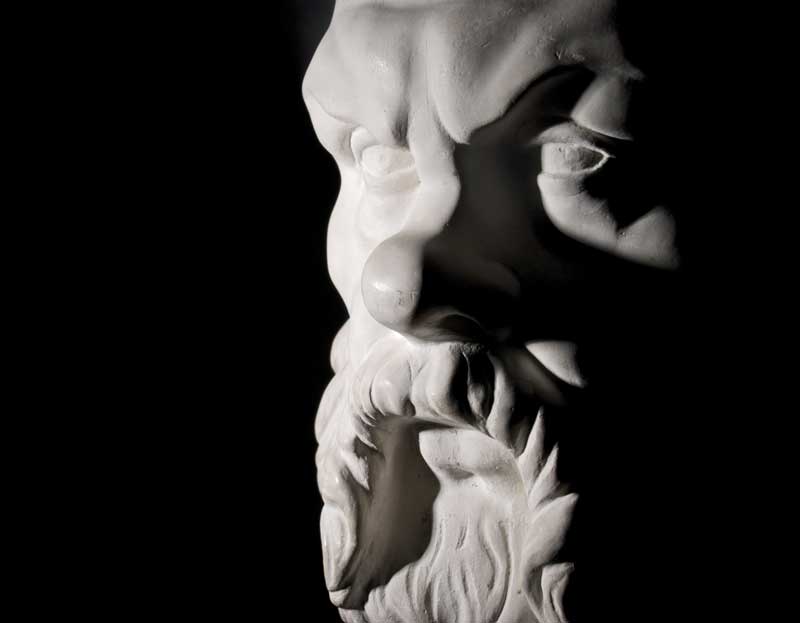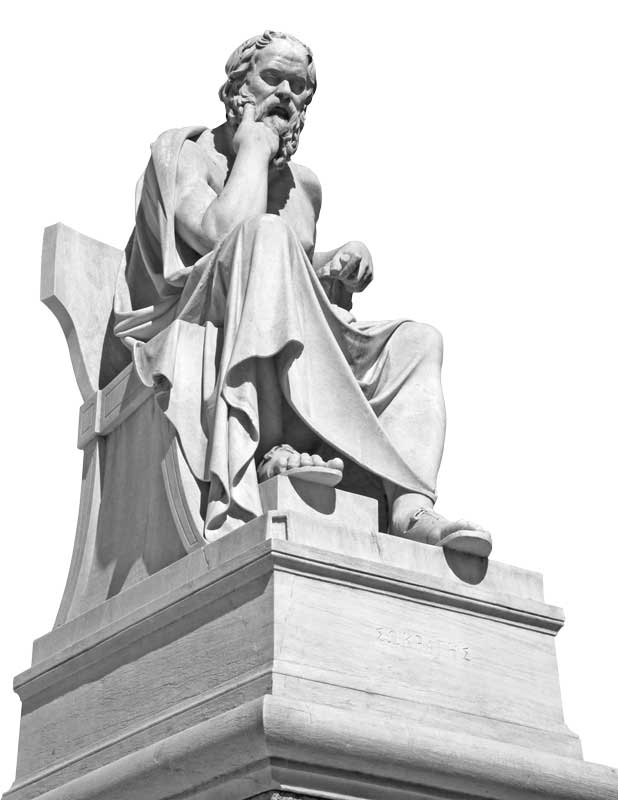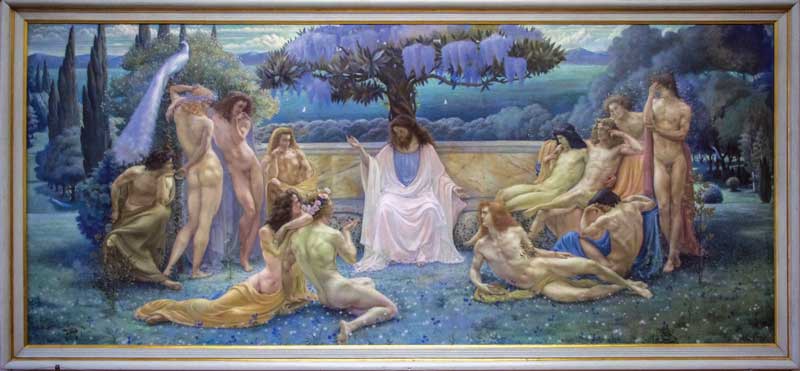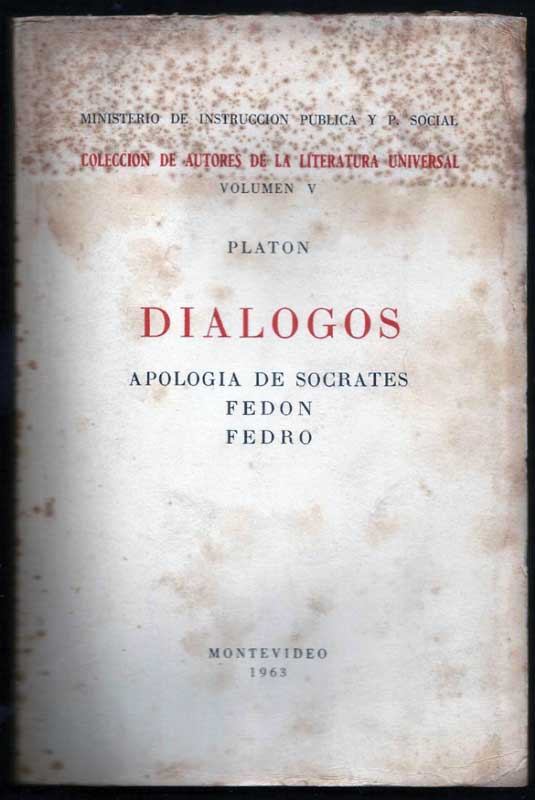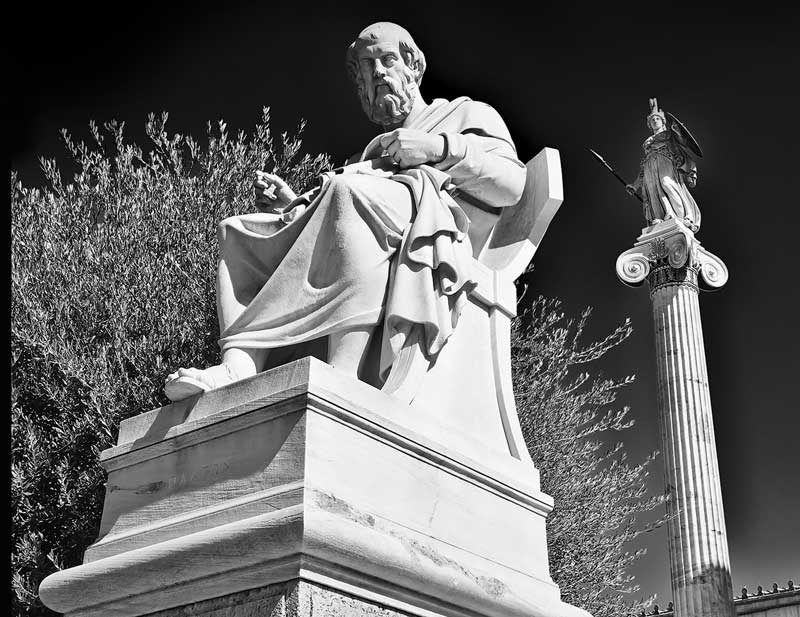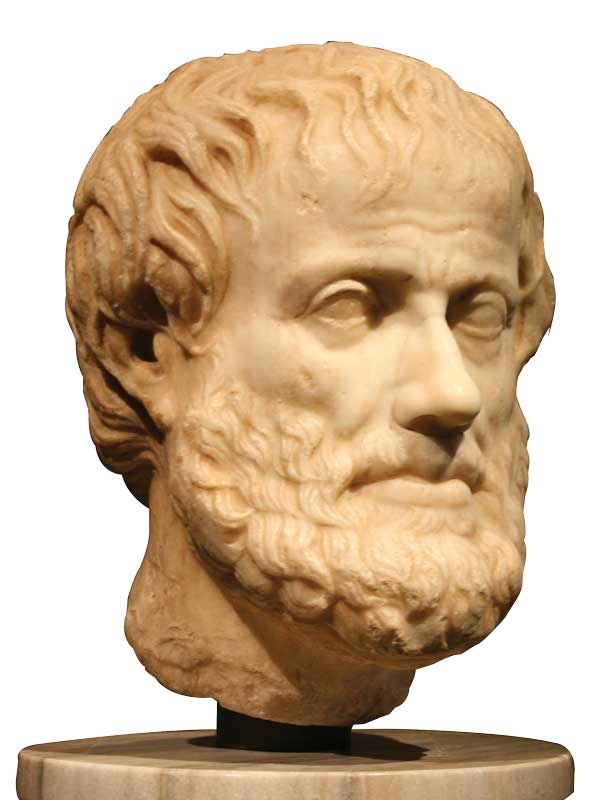The philosophers Socrates, Plato and Aristotle
Greek literature and philosophy are without a doubt the reason why these disciplines developed in western civilization. Philosophers in general showed a modest demeanor; they did not dare to call themselves sofoi, wise, but philosophers, “lovers of wisdom.” Thus, they declared their aspirations to be wise someday, rejecting the notion that they already are.
"“Know Thyself.”
Socrates
"I know one thing: that I know nothing.”
Socrates
Socrates created his method, known as maieutic or the Socratic Method, perhaps because his mother had been a midwife. Just as she helped bring human beings into the world, Socrates urged his students to formulate ideas, to give birth to them; that is, he taught them to think rationally while trying to reach the essence of any topic: beauty, friendship, justice, and love. And even if that ultimate essence of things could not be defined, during the process of attempting to, his disciples acquired knowledge that dignified him, preparing him to be a better human being and have a broader knowledge of the world he inhabited. His famous aphorism: ‘I know one thing: that I know nothing,’ exemplifies total humility, which is the appropriate attitude for those who wish to learn, because hubris, that is to say, the belief that you already possess knowledge, is the worst obstacle to any learning experience.
Socrates never wrote anything. It was Plato, his disciple, who recovered Socrates’s teachings in his Dialogues, resorting to dialectics as a method. The Platonic dialogues, in which Socrates is always the main figure and speaker, are often engaging. As a setting, they have any street of Athens, a gym or palestra, or a symposium—like the dialogue of the same name that deals with the subject of love—where Socrates has conversations with one or more participants, and takes them to the remotest corners of their own minds, trying to elucidate the topic of discussion. His dialogues cover politics, arts, and education; many of his arguments, even if it has been twenty-five centuries, are still relevant today. For instance, in The Republic he dealt with the subject of education, arguing that it should nurture youths with gymnastics for the body and music for the soul. Music, in broad platonic terms, means the mastery of the Muses: poetry, music, dance and astronomy, among others.
"“Beauty is the splendor of truth.”
Platón
UNESCO declared 2016 as aristotle anniversary year 2,400 years since his birth.
Meanwhile, Aristotle is considered the father of science; his research spans diverse fields in physics as well as metaphysics. He studied botany and zoology, geography and meteorological phenomena, ethics and politics, rhetoric and what he called Poetics, where he delved in theater. If we recall the golden age of comedy and tragedy during the glorious 5th century BC, and the impact these performing arts had with audiences, it will be easy to understand the importance of Aristotelian thought; when he addresses characters in tragedy, in reality he is producing an x-ray of the human soul. An interesting fact about Aristotle is that Alexander the Great was his disciple, and it was through him that Aristotelian thought, sciences and wisdom, reached as many territories as he conquered.
If we analyze what we learn nowadays in school, we would come to realize that all of it originates from, or is related to, the Greeks: Arithmetics, Mathematics, Geometry and Music are concepts developed by Pythagoras. Grammar, History, Biology and Architecture also find their inception in Hellenic thought. The terms themselves are Greek as well.
"Friendship is one soul dwelling in two bodies, one heart in two souls inhabiting. "
Aristóteles
Text: Natalia Moreleón ± Photo: © Anastasios71 / © Olga Semicheva / © Lornet / ART MUA / arj rnv / MITOLOGIA EN LETRASa / vp / © Brigida Soriano

